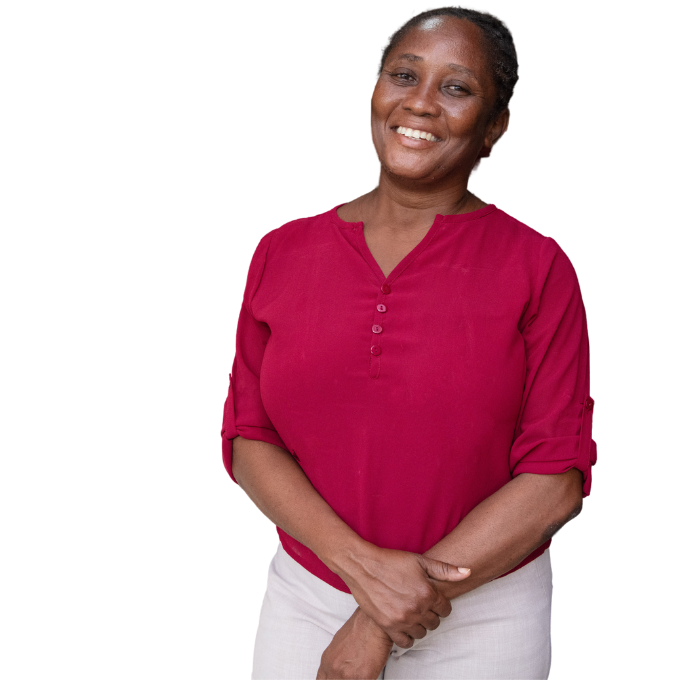“We never give up on our patients. We are proud of our mission, which is to serve the most vulnerable.”
Your donation can help Dr. Clermont and our entire staff care for more patients than ever before.

Fifteen months after Hurricane Matthew ravaged southwest Haiti, things are slowly returning to a new normal. Successful summer and fall harvests have helped slow the spread of malnutrition, and alleviate fears of continuing widespread hunger across the region. HEI/SBH’s stalwart mobile clinic teams have provided care to 19,888 patients since Hurricane Matthew, many of whom would have otherwise had no access to doctors. But people in these areas are still very vulnerable to infectious diseases and other health concerns.
HEI/SBH’s mobile clinics, in partnership with UNICEF and The World Bank, have been key to getting care to those who needed it most after the storm. But permanent, ongoing services in these communities will be critical to ensuring people continue to get the care they need. To that end, your support has provided intensive training to 26 new Community Health Workers. The trainees come from communities across southern Haiti, focusing on the hard-hit communes of Tiburon and Maniche, as well as new CHWs from communities in the Fond des Blancs area.
HEI/SBH’s Communications Associate, Alexis Erick Georges, interviewed Community Health Worker trainees who have been participating in the 50-day intensive training at our mobile clinic headquarters in Les Cayes. Get to know how the program has changed their futures and hopes for their communities, in their own words:
HEI/SBH: What has this training meant for you?
Tiburon Team: It has been a great training, which will help us help people in our communities. We can say for sure that this training will help us prevent significant common diseases like diarrhea, malaria, fevers, conjunctivitis, typhoid, and cholera. These have all been prevalent since Hurricane Matthew.
HEI/SBH: Do you feel ready to deal with the health challenges facing your communities?
Souverain: Yes, because the training has been very practical, and we have done a lot of simulation exercises in the field. We have already put our skills and knowledge into practice at clinic visits, home visits, and community education activities. Now we can take all of this knowledge back to Tiburon with confidence.
HEI/SBH: What has been the main benefit of this training for you?
Maniche Team: This training has taught us how to promote health and health education in our communities, and gives us a strategy for approaching significant health concerns among our neighbors. It will help us have a good relationship with our neighbors and be helpful to all of our communities.
HEI/SBH: This has been a long and intensive training. What made you want to participate?
Jean: I am going back to Maniche with the skills to take care of myself and my community better. Our communities have not had community health workers, but we had all heard about how important they have been in other parts of the country and dreamed of having a community health worker program in Maniche. Now, people in our communities are proud that they will have this talented team to work with them against common diseases.
HEI/SBH: You all come from the region closest to St. Boniface Hospital. What made you want to become community health workers?
Fond des Blancs team: This training has strengthened what we already knew about the prevention of common diseases, and gives us new skills and strategies for improving the health of our communities so that people can avoid getting sick in the first place. Even though we are close to St. Boniface, our communities are still vulnerable to many diseases. When your community is vulnerable, you are vulnerable too, so we want to work to make sure everyone can stay healthy. We feel so grateful to [HEI/SBH] and its supporters for making this training possible.
Fabienne Jean Jacques is one of the trainers for the HEI/SBH community health worker program. She has been teaching health education and community health work for many years. She comes from the community of Les Anglais on the far west coast of southern Haiti—one of the places that were in the center of Hurricane Matthew and saw terrible destruction after the storm. She notes that even though Les Anglais has a health clinic, community health workers benefit the entire region.
“My community of Les Anglais is a “red alert” zone for malaria, and we see many patients at the health clinic there who are suffering from malaria. Some of them come from Tiburon and other communes very far away and have to travel very far when they get sick. Having community health workers from this training working in Tiburon will help prevent infection and the spread of common diseases, so these patients won’t have to travel so far to get treatment for preventable diseases, and the clinic can be available to treat other patients in need. This is a great program that [HEI/SBH] and its supporters have brought to these communities.”
The class of community health worker trainees graduated from the 50-day intensive training in February 2018. The graduation included speeches, role-playing skits performed by the graduates, and a celebratory meal. As soon as the ceremony was over the new community health workers headed back to their home communities to begin work.
Thanks to you, twenty-six communities in southern Haiti now have a permanent community health worker, when before they had little to no access to trained health care providers. The twenty-six new community health workers are already making a difference, preventing common and potentially deadly diseases, and will continue to work diligently to keep their communities healthy. Your support has empowered them to become leaders and pass on their knowledge to their friends and families, improving the standard of living for the entire region.
Your donation can help Dr. Clermont and our entire staff care for more patients than ever before.
